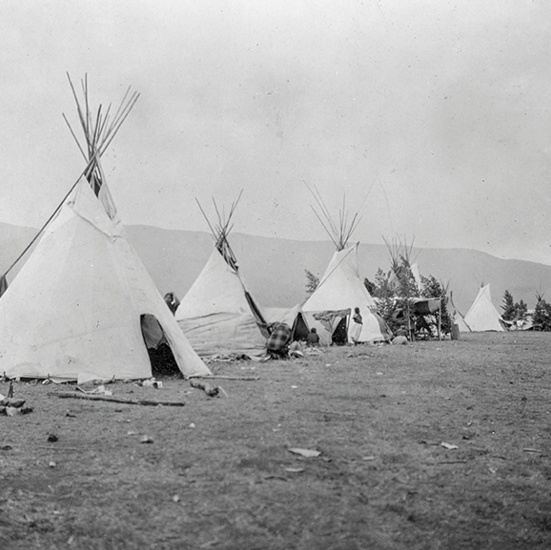Tipi
When one pictures the early West and First Nations people, one cannot help but imagine a traditional Tipi. This multi-use structure was a perfect balance of ease of construction and rigidity to withstand prairie life.
When one pictures the early West and First Nations people, one cannot help but imagine a traditional Tipi. This multi-use structure was a perfect balance of ease of construction and rigidity to withstand prairie life.
Often regarded as a simple structure, the often overlooked architecture and multiple applications make this lodging a vital part of plains Indigenous society. Tipis were a staple throughout many tribes in Canada and the Western plains due to their high mobility and ease of erection. Often referred to as a women's structure, the Tipi was intrinsically designed to be many structures at once, meeting the many needs of First Nations people. Using complex architecture, arithmetic and construction processes, the Tipi was designed to not only adapt to changing weather patterns, but withstand the fiercest conditions. Serving as not only a shelter from the elements, each pole within the Tipi was connected to a teaching, and depending on the Nation this could be a creation story or other history.
In some Nations, the teachings of each pole helped educate youth and others on the thirteen moons, calendars and the cycles of the natural world, making the Tipi a mobile school. Being made of readily available materials, like aspen poles and hide/canvas, meant that vast territories could be travelled with ease of mind knowing that wherever stops occurred, shelter could be erected quickly. Depending on the current needs of the community, similar structures dedicated to specific uses could also be erected using arithmetic, this included smokehouses, ceremonial lodges and other structures. It is important to note that each Nation had a different approach to the Tipi, and there exists diversity between Blackfoot, Cree and Nakota teachings and structures.
Details
Type
Indigenous
Designation Status
No Historic Recognition
Address
,Edmonton, AB
Neighbourhood
TBD
Time Period
Pre-Contact and Fur Trade: 11,000 BCE to 1870
Urban Settlement: 1870-1904
Urban Growth: 1905-1913
The War Years: 1914-1945
The Post War Years: 1946-1970
Year Built
n/a
Architects
Architectural Styles
Character Defining Elements
Semi-permanent , Easily erected , Adaptable exterior , Natural materials , Wood frame
